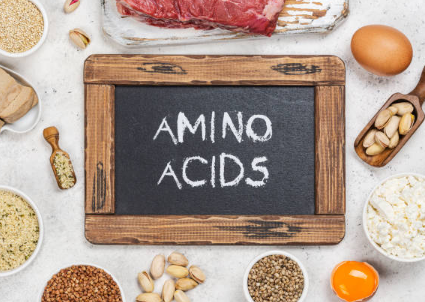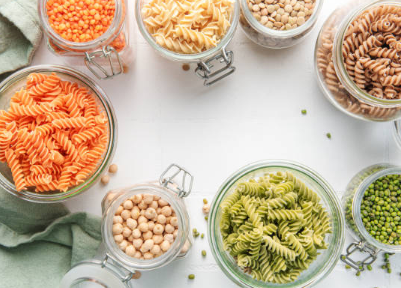Lysine is an important micronutrient with many health benefits. But how can you be sure you’re getting enough of this essential amino acid in your diet?
Overview of Amino Acids
If you remember high school biology class, amino acids are the building blocks of protein, one of the three major nutrients in the human diet, along with carbohydrates and fats.

Both plant and animal proteins are made up of 20 amino acids. The human body needs all of this to produce the protein it needs for optimal health.
11 of these amino acids are “non-essential” and can be produced in sufficient quantities by your body. The remaining nine are “essential,” which means they must be obtained through diet because your body can’t produce enough amounts.
Essential amino acids include lysine and branched-chain amino acids (BCAAs), leucine, isoleucine, and valine. BCAAs are well-researched and highly regarded nutrients by the bodybuilding community because they play an important role in muscle protein synthesis (MPS) and recovery. The construction and repair of tissue proteins is called protein synthesis, and this process allows our body to replace damaged or dysfunctional organ tissues. It’s also important to build muscle protein in response to exercise to increase muscle mass, strength, speed, and endurance.
What Is Lysine and Why Is It Important?
Obviously, each of the 20 amino acids has unique properties, benefits, and effects. Like all other amino acids, lysine is essential for healthy growth, development, and function. In addition, lysine is essential for the production of carnitine, an important compound in energy production that converts fat into energy.
An older study from 2007 found that most healthy adults need about 30 milligrams (mg) of lysine per pound (14 mg/kg) of body weight per day.
For someone weighing 160 pounds, this equates to 2,240 mg (2.24 grams) of lysine per day. Another study showed that the optimal lysine concentration for adults was 45 mg per gram of protein intake, the second highest amino acid concentration after leucine.
Health Benefits of Lysine
Lysine is an essential nutrient that has a variety of health benefits, including:
1. It can improve bone health
Lysine helps your body absorb calcium, which is essential for strong, healthy bones. In addition, lysine aids in the formation of collagen, a protein that is essential for bones and connective tissue.
In a recent human study, certain essential amino acids, including lysine, were associated with a decrease in bone loss that occurs naturally during aging.
2. It supports healthy immune function
Lysine helps produce various hormones, enzymes, and antibodies to support the immune system. In addition, it has antiviral properties that protect against the herpes simplex virus, and some studies have shown that it can improve the nutritional balance in the body, thus inhibiting the spread of the virus.
3. It promotes muscle growth
An animal study has shown that lysine plays a key role in skeletal muscle growth by increasing protein uptake and MPS in muscle.
What if You’re Vegan?
Studies have shown that the lysine content of plant-based proteins is generally lower than that of animal-based proteins. This is because most animal proteins are whole proteins (containing sufficient amounts of all nine essential amino acids), while many plant proteins lack some amino acids.

But that doesn’t mean vegetarians and vegans can’t get enough lysine from their diet. Strategically pairing plant proteins to form complete proteins to complement each other’s amino acid profiles helps ensure you’re getting enough of each essential amino acid, including lysine.
Additionally, supplementing with a high-quality vegan protein powder can help you meet your daily lysine intake.
Vegans and vegetarians can synthesize protein by making sure they pair low-lysine vegetable protein with high-lysine foods at the same meal, for example, the lack of lysine in rice can be compensated for by eating lentils that are high in lysine.
Lysine-Rich Foods:
- Cheese (Parmesan): 3.3g/100g
- Soybeans: 100.2 grams per 7 grams
- Chicken: 2.6 grams per 100 grams
- Shrimp: 100.2 grams per 2 grams
- Tuna: 2.1g/100g
- Pork: 1.9 grams per 100 grams
- Lentils: 1.7g/100g
- Legumes: 1.5 grams per 100 grams
- Lamb: 1.5 grams per 100 grams
- Beef: 1.4 grams per 100 grams
- Pumpkin seeds: 100.1 grams per 2 grams
- Pistachios: 100.1 grams per 1 grams
- Eggs: 0.9 grams per 100 grams
- Yogurt: 100.0 grams per 8 grams
- Oats: 100.0 grams per 7 grams
- Spirulina: 100.0 grams per 3 grams
- Quinoa: 100.0 grams per 2 grams